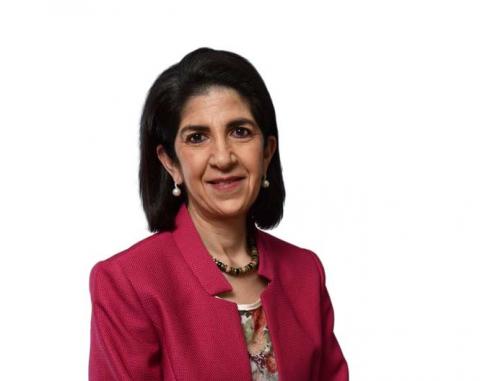On 21 June, we laid the symbolic foundation stone of the Science Gateway: an occasion to show the great progress that is being made towards CERN’s new learning centre.
Speakers at the ceremony, including the President of the Council making her presentation from the Pompidou Centre in Paris, used the occasion to underline CERN’s values as a diverse and inclusive centre of scientific excellence, and the role that the Science Gateway will play in spreading those values when it opens in 2023.
That first stone was not the only solid foundation to be put in place last month at CERN. The CERN Council met online during the week of 14-18 June and took decisions that underpin CERN’s future. I’d like to report on two of them: the approval of the Medium-Term Plan (MTP) for the period 2022-2026, and the definition of the main deliverables and milestones for the Future Circular Collider (FCC) Feasibility Study, as well as the establishment of an organisational structure for the said Study.
The unanimous approval of the MTP provides a ringing endorsement from the Council of the work we are doing at CERN, and also a commitment to the long-term sustainability of the Laboratory. Roughly 60% of the resources in the MTP will be directly invested in science, with the rest being largely devoted to the maintenance and renewal of our technical and general infrastructure. This will ensure a good working environment and a strong level of services for the global CERN community for many years to come.
In approving the organisational structure for the FCC Feasibility Study, the Council backed up its update of the European Strategy for Particle Physics in 2020. The Feasibility Study will run until 2025. Results will be described in a Feasibility Study Report, providing input to the next update of the strategy. The Study currently involves some 150 institutes from around the world, and is coordinated by CERN. In recognition of the scale and ambition of the FCC, the Council has positioned itself as the oversight body for the Feasibility Study, whereas a Steering Committee, a Collaboration Board and a Scientific Advisory Committee provide supervision of, or advice to, the execution of the activities. A Coordination Group, chaired by the Study Leader will coordinate a number of work packages around six thematic areas, from the development of the accelerator and detector technologies to the administrative and geological challenges of a 100 km tunnel in the Geneva area. Potential partners with an interest in contributing significant resources to a future circular collider at CERN will be invited to take part in Council sessions devoted to the FCC.
The main deliverables and milestones for the FCC Feasibility Study divide along two main lines: technical and financial. On the technical side, a decision on the optimum placement of the ring based on geological surveys and on the locations of the surface areas will be made by mid-2022. This will be followed by detailed studies of areas identified as geologically challenging from mid-2023 to mid-2025. An updated design will be presented, and a mid-term review conducted, in 2023.
In parallel, a financial feasibility study will develop a spending profile by the end of this year, and the costings of the project will be reviewed by a committee of external experts in 2023 and 2025. The funding model, including the identification of potential contributions from outside the CERN budget, for the first-stage of the project, the tunnel and an electron-positron collider (FCC-ee), will be presented by the end of 2025.
The Council also congratulated CERN and its community for the great accomplishments on the scientific programme and all the Laboratory’s activities despite the testing period. I would like to thank our Member and Associate Member States for their trust and support and for having delivered 95.6% of their contributions to the 2021 CERN budget by the time of the June Council meeting, a ringing vote of confidence in CERN. You’ll find further information in the presentations from the Directorate’s Online Meeting with personnel on 22 June.

